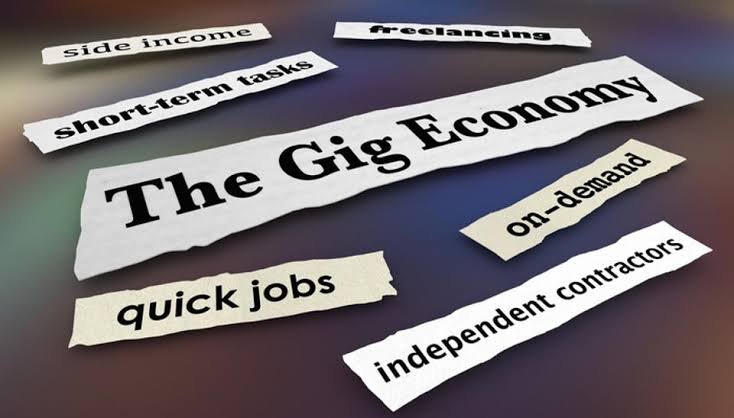Benefits of the Gig economy
The gig economy refers to the increasing trend of people working as independent contractors, freelancers, or on-demand workers rather than as employees with a single employer. This shift in the way people work has been driven by technological advancements that make it easier to find, connect with, and work for clients or customers. The gig economy includes a range of industries, from technology and design to food delivery and transportation.
One of the key benefits of the gig economy is increased flexibility. People can work when and where they want, taking on projects that align with their interests and skills. This can lead to a better work-life balance and greater control over their schedules. It also means that people can earn money in their free time, which can be particularly valuable for those looking to supplement their income.
Another advantage of the gig economy is the potential for higher earnings. Independent contractors often have the ability to set their own rates, and can choose projects that pay well. They can also work for multiple clients or customers at once, allowing them to increase their income without having to work long hours for a single employer.
However, there are also challenges associated with the gig economy. One of the biggest is the lack of job security. Independent contractors do not have the same protections and benefits as employees, such as paid time off, health insurance, and unemployment benefits. This can make it difficult for gig workers to plan for the future and ensure their financial stability.
Another issue with the gig economy is that it can be difficult for people to find consistent work. Independent contractors have to actively seek out new clients or customers, and may struggle to find enough work to support themselves. This can be particularly challenging for those who are new to the gig economy, as they may not have a large network of clients or customers.
There is also a concern that the gig economy is contributing to the widening income gap and the decline of the middle class. Independent contractors are often paid less than employees for the same work, and may not have access to the same benefits and protections. This can make it difficult for gig workers to make ends meet and can contribute to economic inequality.
The rise of the gig economy has also led to debates about worker classification and the responsibility of companies to provide benefits and protections to their workers. In many cases, companies are taking advantage of the gig economy by categorizing workers as independent contractors in order to avoid paying benefits and avoiding labor laws. This has led to legal battles over worker classification, with some companies facing lawsuits from gig workers who argue that they are employees and should be entitled to benefits and protections.
Despite these challenges, the gig economy continues to grow, and is likely to play an increasingly important role in the future of work. As technology continues to advance, it will become easier for people to find and connect with clients or customers, and the number of gig workers is likely to continue to rise.
The gig economy offers increased flexibility and the potential for higher earnings, but also brings with it a lack of job security, difficulties in finding consistent work, and concerns about worker classification and the impact on the income gap.
Despite these challenges, the gig economy is likely to continue to play a significant role in the future of work, and it is important for policymakers, companies, and workers to find ways to ensure that gig workers have the protections and benefits they need to support themselves and their families.
Posted Using LeoFinance Beta
